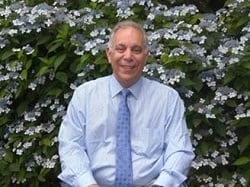Reflections: Transition Through Retirement
What Type of Retiree Might You Become?
By Glenn Mangurian BS, MBA and Joanna Cain, MD
"Retirement can be a roller coaster because you are changing so much about your life--your work role, your relationships, your daily routines and your assumptions about yourself," says Nancy K. Schlossberg*, EdD, a counseling psychology professor at the University of Maryland, and author of, “Retire Smart, Retire Happy: Find Your True Path in Life” (American Psychology Association, 2004).
“Retirement implies that you're just leaving something; it doesn't reflect that you're going to something… But it is really a career change. You are leaving something that has been your primary involvement, and you are moving to something else."
No two retirees are the same. Dr. Schlossberg identified the following six form of retirement based on her interviews with about 100 retirees:
- Continuers stay connected with past skills and activities, but modify them to fit retirement, such as through volunteering to mentor residents or students or teach science in a school system.
- Adventurers start new activities or learn new skills not related to their past work, such as learning to play the piano or taking on an entirely new job.
- Searchers learn by trial and error as they look for a niche; they have yet to find their identity in retirement.
- Easy gliders enjoy unscheduled time and like their daily schedule "to go with the flow."
- Involved spectators maintain an interest in their previous field of work but assume different roles, such as an internist who becomes a volunteer “ethics” consultant at a nearby hospital.
- Retreaters become depressed, retreat from life and give up on finding a new path--the only negative path in Schlossberg's classification.
Glenn: I describe myself as semi-retired. I am a hybrid blend of Continuer, Adventurer and occasional Easy Glider. I expect my path in retirement to continue to evolve. It my choice and it’s exciting.
Joanna: We all know some faculty who have retired and fit one or more of Dr. Schlossberg forms of retirement. Some become admired mentors for student research while others follow their passion in new or lifelong hobbies such as the arts or music. Still, others receive the simple but abundant joy in being with their family and friends. A few fail to transition to new roles and continually compare their present status to their “lost identity” as a clinician, researcher or leader in medicine and science. As highly creative individuals we can shape our paths as an exciting journey throughout retirement—no retreat needed.
Reflections on Your Retiree Type
- Which path is likely to be your starting point for retirement?
- How do you think your retirement will evolve?
- What will make retirement exciting?
*Dr. Nancy K. Schlossberg is an expert in the areas of adult transitions, retirement, career development, adults as learners, and intergenerational relationships. she is a Professor Emerita, Department of Counseling and Personnel Services, College of Education at the University of Maryland. She previously served on the faculties of Wayne State University, Howard University, and Pratt Institute.
Glenn Mangurian (MBA, UMass Amherst) is a semi-retired business consultant new senior citizen. He spends his time consulting and teaching leadership as an adjunct faculty at UMass Amherst and Lowell. He is currently a consultant to the UMass Chan Office of Faculty Affairs.
Joanna Cain, MD, FACOG is a Professor and Vice Chair of Ob/Gyn and Director of Faculty Talent Management at UMass Chan Medical School. As a former Department Chair, hospital administrator, and gynecologic oncologist she has experienced many transitions both personal and with patients and faculty.

Glenn Mangurian (MBA, UMass Amherst) is a semi-retired business consultant new senior citizen. He spends his time consulting and teaching leadership as an adjunct faculty at UMass Amherst and Lowell.
Have you read other Reflections?
- Why are transitions so difficult?
- When will you be ready to retire?
- How do I prepare for retirement beyond the financial?
- What does transition to retirement look like?
- How does a couple prepare for retirement?
- What type of retiree might you become?
- This is not your parent's retirement
- Developing a Strategy for Succession
- Why Do Academic Faculty Retire?